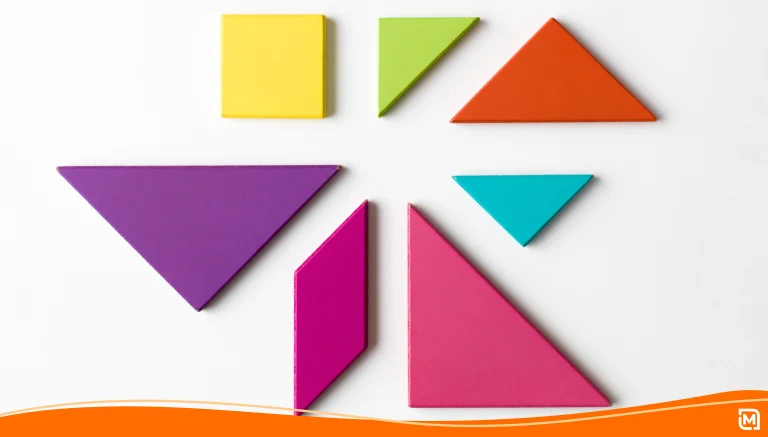As a startup, you know that your reputation and the buzz surrounding your company are two of the biggest ways to be recognized in the crazy-competitive world of entrepreneurship.
One hit to your branding strategy, or bad word from a potential investor, could be the end.
In short, the last thing in the world that you want is for your brand’s logo to end up on the worst logo failures list which covers some of the worst logo designs of all time.
But what does it take to learn how to make a good logo, and which elements are the most important?
Keep on reading this post to find out.
From choosing the right colors to learning how to simplify your design, by the end of it, you’ll be an expert in how to create entrepreneurship logos that make a serious impact on your market.
Elements of a successful entrepreneur logo design
1. Keep it Simple
One of the most important things to keep in mind when you’re in the process of designing a few test entrepreneurship logos?
Less is more.
We know that, especially within the competitive atmosphere of the startup world, you’re eager to prove the many ways in which you’re different from the competition to your target market and potential investors.
However, your logo isn’t the place to say everything at once.
By keeping your logo as simple as possible, you create tons of intrigue and interest in your brand. Let people wonder what your startup is selling. Your job in learning how to create a company logo for your startup is to think about what gets people talking.
You want to inspire them to do their own research. You don’t want to give everything away or throw a ton of information at them at once.
Plus, a cluttered logo can quickly cause you to look desperate. It can also make you look like you’re overcompensating for an idea that’s not really all that disruptive and revelatory.
So, if you want to know how to create a logo that lets people know you already have a reputation — and that your startup’s strength speaks for itself?
Keep it simple.
2. Legibility is Key
You’ve come up with the perfect tagline for your entrepreneurship logos. You’ve also found a way to include your startup’s name, and even the city where you’re located.
In short, you know that your logo isn’t just going to generate interest in your brand. It’s also going to show people how they can directly connect to your company.
This all sounds great — until you realize that the typography you’ve chosen is actually unreadable.
First of all, remember that keeping your logo as simple as you can isn’t just good advice when it comes to colors and the number of images you include. It also rings true for any text you can include.
Your logo isn’t a business card. It’s a branding symbol. So, save things like your contact information or your store’s hours for the card.
Also, when it comes to font color, basic black or white is always best. Sure, neon pink might look cool, but people will likely have trouble reading it.
Also aim to avoid fonts that are excessively loopy or hard to read.
To test this, you should view your logo in many different sizes. Also, look at it from different lengths away and angles.
You’ll likely find that a bold and block-lettered font is best.
Finally, remember that you can always have a bespoke font created for your logo. This is an awesome way to stand out for your competitors.
Plus, you can then use this font on your product packaging, your website, and anyplace else you’d like to incorporate your branding strategy into.
3. Focus on Color
Few things are more important in your overall logo design than the colors that you’ll choose to represent your brand.
This isn’t just the case because colors can help you get the attention of your target market.
The right colors have actually been scientifically proven to create emotional responses — and physical ones, too — in the people that see them.
Colors also help the people who come into contact with your logo to understand the industry that you’re operating within.
For example, if your logo contains lots of greens and blues, your market will likely understand that you’re a natural company.
If you choose colors like black and red, they’ll likely associate your brand with something in the financial industry.
No matter what you end up going with, we strongly suggest that you take the time to do the proper research on the connotations of certain colors.
4. Create Multiple Designs
We know that things in the startup world move quickly.
In order to keep pace, you need to, too.
After all, you don’t want to be stuck in the startup phase for any longer than you have to be.
However, if you want to learn how to make a good logo, you need to keep in mind that patience pays off.
Sure, it might save you a ton of time to go with the first design that you created.
However, it won’t do any good when you realize a few months later that it’s not really relevant to your brand — or making any sort of an impact on your target market.
Plus, also keep in mind that every time you have to redesign your logo, you run the serious risk of muddling your branding strategy.
This means that customers and investors alike will have a hard time trying to keep track of all your re-designs.
For best results, make sure that you create at least three potential logo designs.
To generate an interest in your brand and lots of great ideas at the same time, you can look to your target market. This is also an awesome idea for startups that want to learn how to create a company logo, but are also short on cash.
You can offer a percentage of your company’s ownership or even future stocks to the winner of a logo design contest. This will also help to generate brand loyalty.
When people feel like they’ve been able to be a part of your company from the beginning, they’re a lot more likely to buy from you in the future.
Make sure that you advertise your contest on all your social media handles to get a high quality of entries.
5. Study your Competition
Our final piece of advice when it comes to learning how to create logos that will generate a serious amount of interest in your startup?
Make sure that you know exactly what your competitions’ logos look like.
After all, if it turns out that your logo design ends up looking like a carbon copy of your biggest rival, people will think your brand is just offering a lesser version of the same thing.
You don’t want your startup to end up getting written off as a knock-off.
Make sure that when it comes to choosing colors, images, and even font styles for your logo, that there’s enough of a difference between your designs and those of your competitors.
You also want to study up on what they’re doing so can pick up on more subtle elements of their business that their branding might reveal.
For example, depending on the font and colors that they choose?
You may be able to understand that they’re trying to target the millennial market.
This way, you can pivot your own market accordingly.
After all, the beauty of still being in the startup phase is that you can make these kinds of adjustments without having to start from scratch!
Ready to Create your own Entrepreneurship Logos?
We hope that this post has been able to take a little bit of the mystery out of learning how to make a good logo.
Remember that, especially when it comes to designing entrepreneurship logos, you need to focus on your colors, your font, and keeping things as simple as possible.
You should also concentrate on learning from the successes and failures of the designs of your competitors.
Looking to come up with a few potential logo designs for your startup?
We’re here to help.
Give our free online logo maker tool a shot to see which elements make the kind of an impact you’re looking for.
Then, be sure to keep on checking back with our blog. We always offer the latest logo design advice to help you make the right kind of impression.



